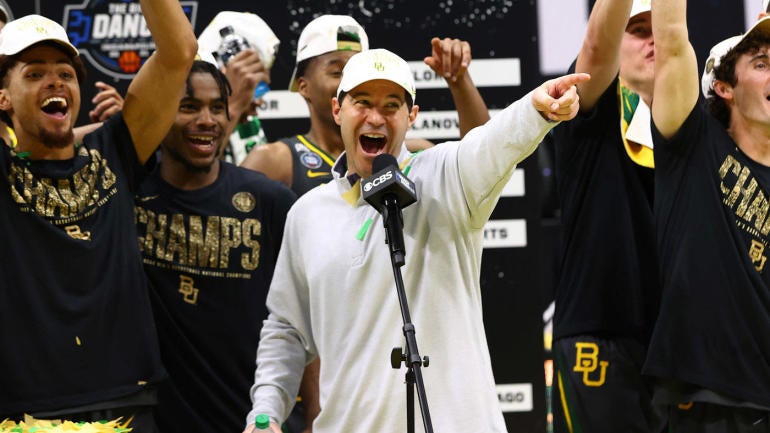
Conference realignment at the top of college athletics has largely been motivated by television markets and/or football relevance. Example: When the ACC expanded for the first time this century back in 2004, the league took Miami and Virginia Tech from the Big East instead of, say, Syracuse, which had just won the national championship in men's basketball. In other words, the quality of a school's men's basketball program is mostly meaningless in these landscape-changing conversations.
We were reminded of such recently when the SEC added Texas and Oklahoma, leaving one of the sport's biggest brands (Kansas), the reigning national champ (Baylor) and one of the eight most recent Final Four participants (Texas Tech) in a diminished Big 12 that's vulnerable and perhaps in jeopardy of losing Power Five status.
"That is a valid concern and something we've talked about," Texas Tech athletic director Kirby Hocutt said Monday at a Texas Senate hearing that alternated between contentious and entertaining.
Added Baylor AD Mack Rhoades: "[Being in a Power Five conference is] critically important to recruiting students. You just can't buy that quality of publicity. ... If we are no longer a member of a Power Five conference, we will sell less tickets, we will sell less merchandise, we will raise less money."
Why Oklahoma and Texas leaving the Big 12 for the SEC is terrible for college sports. Listen and subscribe to the latest episode of Eye on College Basketball below.
Those comments clearly indicate that these are uneasy times for the remaining eight Big 12 institutions. The public stance is that the plan is for everybody to be loyal and stick together. But with Texas and Oklahoma on the way out, most believe any of the remaining eight schools -- Baylor, Iowa State, Kansas, Kansas State, Oklahoma State, TCU, Texas Tech and West Virginia -- would also bounce if the ACC, Big Ten, Pac-12 or SEC provided an opportunity.
So good luck relying on loyalty when nobody is actually tied to the concept. In truth, the best thing going for the Big 12's hope of survival is that sources are skeptical that the ACC, Big Ten, Pac-12 or SEC would even want any of its remaining eight members, though some sources have wondered whether the Pac-12 could ultimately be interested in the Big 12's Texas-based schools.
This makes a report from CBS Sports' Dennis Dodd that Big 12 commissioner Bob Bowlsby and Pac-12 commissioner George Kliavkoff met Tuesday to discuss scheduling possibilities, or even a potential merger, an interesting development. But as The Athletic's Stewart Mandel quickly pointed out, a full merger between the Pac-12 and Big 12 doesn't really make sense -- at least not for the Pac-12. So a more likely scenario is the Pac-12 taking some Big 12 schools instead of merging with all Big 12 schools (if the Pac-12 even takes any Big 12 schools at all).
What's even more likely than that, most sources believe, is the Big 12 eventually poaching AAC schools in an attempt to just become the best version of a lessened league that it can become.
That won't excite Kansas or Baylor or Oklahoma State, but it could be massive for schools like UCF, Cincinnati, Houston, Memphis and SMU, all of which have solid television markets and football programs that have enjoyed recent success. As previously noted, basketball doesn't move the needle much in realignment conversations; consider that point understood. That said, there's no denying that adding some combination of those AAC schools could enhance the Big 12's basketball product.
Would it make up for losing Chris Beard's Texas program and Porter Moser's Oklahoma program?
Perhaps not.
But Cincinnati and Memphis are historically strong, Houston has been great under Kelvin Sampson, and UCF and SMU have each participated in recent NCAA Tournaments. So a Big 12 that's lessened in general by the loss of Texas and Oklahoma could still easily be among the best men's basketball leagues in the country if things break a certain way in the coming months and years.

















